Photo Courtesy: Quinnipiac Athletics
By: Victoria Rutigliano
Twenty-five minutes from the nearest grocery store, Mason Johnson’s home in the Pacific Northwest provided a perfect rustic backdrop for “growing up.” Whether he was planting trees for his dad’s landscaping company or mowing the lawn around his mom’s house, Johnson described himself as a “t-shirt and shorts” kind of kid, one who found purpose in the solitude of physical labor.
Growing up on a seven-acre lot on the back roads of Olympia, Washington, Johnson grinded through the daily life of a young, country guy.
On the opposite side of the country, Johnson carries out his day-to-day job with Quinnipiac University’s two-time national champion rugby team the same way he would at home — dedicated, physical.
It is here that Johnson’s story separates itself, or—just maybe—that it comes together.
The country guy from the West was born a female.
* * *

As a junior captain of the rugby team, Johnson plays the position of the scrum half — the link between the forwards and backs. Often in the course of game action, Johnson is the one who has to decide whether to pass the ball, or to make a play down the field.
Johnson’s toughest decision, though, came during his sophomore year when he decided to come out to his team as a transgender male.
Known as “Megan” to his teammates to that point, Johnson opened up during a group bonding exercise. Sitting around with his teammates, he heard others’ stories of strength and hardship and decided to disclose information he hadn’t even told his family – he identified as a man.
“It was my fortitude moment,” Johnson said. “It was where everything started and my life kind of turned around at that point, and things just started rolling and I could live more as me from then on.”
Jess Maricich met Johnson after transferring from Eastern Illinois after her freshman year to play rugby at Quinnipiac.
During that group exercise, Maricich marveled at Johnson’s strength of character, but still needed some time to get used to Johnson’s reality.
“Slowly, myself and everybody else on the team truly embraced the new identity, and the social aspects, and the pronouns and everything like that,” Maricich said.
The two eventually became roommates.
* * *
Jaime Stevens is an associate professor of psychiatry at the University of Hawaii. A medical doctor with a Master’s degree in public health from the University of Connecticut, Stevens works with trans, gender diverse and fluid youth.
“Transsexual folks are typically defined as being a part of the subset of the greater transgender/gender non-conforming population for whom medical intervention is needed in order for them to fully actualize their gender identity,” Stevens explained.
This medical intervention is delivered in the form of hormone treatment and surgeries.
Johnson’s first off-campus therapist wasn’t supportive. He needed his therapist to sign off on him getting “top” surgery, a procedure in which female breasts are removed and a male chest is sculpted.
When Johnson went to get the letter, the therapist crushed his first step.
“She basically said that, bluntly, she was like, ‘Your boobs are too small and they don’t cause you enough pain, so I’m not going to write you your letter,” Johnson said.
Hormone therapy was ruled out, too.
According to NCAA rules, Johnson can’t take testosterone to continue his transition as it is considered a performance-enhancing drug.
While he wants to start looking like a guy and passing for a man, his place on a women’s team stifles him from doing so.
“I have to prove myself to make this time worth it because it’s hard for me to be here and to play and play the sport I love while not being able to fully be myself,” Johnson said. “I just need to make it, do everything I can with this time because, if not, I could potentially just walk away from rugby and be myself.”

His coach notices this conflict every day.
Sitting in her cramped office, below a sign plastered proudly above her desk reading
“National Champions,” head coach Becky Carlson gets emotional when she replays the dozens of conversations she has had with Johnson about his decision to stay on the team.
“To me, Mason living however Mason is living and getting through this? It is so much more important that he’s happy than rugby,” Carlson said. “So, I’ve been like, ‘Dude, go. It would be so painful, but it’s not about me, it’s not about the team, it’s about who Mason wants to be.’”
The team would not be the same without Johnson, Carlson said.
During its first national title run in 2015, Quinnipiac defeated Norwich in the semifinals and beat Army to win the first-ever National Collegiate Varsity Women’s Rugby Association championship, which is fully sponsored by the NCAA. Johnson was named the Most Valuable Player of the Final Four.
This season, in the newly formed National Intercollegiate Rugby Association, the Bobcats went 7-1 in conference play and stunned the nation’s top club Penn State, which had not lost a collegiate match in five years, in a 41-22 victory just before the NIRA playoffs.
Quinnipiac entered the postseason with the top seed and had a chance to avenge its only loss of the season in the championship game against Central Washington. The Wildcats held a 12-0 lead when Johnson turned everything around.
Johnson muscled the ball out of the scrum, made the call to charge and passed to Ilona Maher, who ran for a 40-yard try. A halftime tie exploded into a 46-24 Bobcats victory.
“Mason will do exactly what you tell him to do, and he will do it a thousand times until he’s got it,” Carlson said. “There are people that are naturally talented, there are people that have to work at it. Mason is naturally talented and then becomes even more talented.”
* * *
Before coming to Quinnipiac, Johnson was a three-time captain of his local rugby team, the Budd Bay Steelheads out of Lacey, Washington. In his senior year, he captained the women’s wrestling team as well, going 30-0 and taking home the Washington state championship title.
Marion DeBarge Foor, Johnson’s former coach on the Steelheads, knows that Johnson’s rugby talent is something special.
“Mason had the most dedication and commitment to athletics in general that I’ve ever seen out of a high school player,” DeBarge Foor said.
“He just asks all the questions, constantly wanting to improve so you could see that he worked on skills outside of practice based on, just from one practice to another, he would just amaze you.”
A few months after Johnson came out to his team, Carlson changed his name in the roster from Megan to Mason. Johnson chose Mason as his new name as most of his friends already called him “MJ” and it sounded similar to Megan.
While his name appears in game recaps as Mason, the articles still used the ‘she’ pronoun — something that Johnson tries not to let affect him.
“Some days are better than others,” Johnson said. “I wish it used ‘he’ and ‘him,’ but a lot of times, I just try to not let it bother me because I know who I am and they just don’t. Technically I’ve never asked anybody to change. I’m sure they would if I did.”
The name change in the Quinnipiac articles puzzled his family who was still unaware of his new identity.
Upon first glance of the stories, Johnson’s mom Becky thought the name was a typo. When she asked Johnson, she found out he had changed his identity – something that would probably surprise a parent, but not Becky Johnson.
“It wasn’t a shock. It felt right knowing who he is,” she said.
“He just would always jump in and in that kind of alpha caretaking, but not a nurturing way, but like a man’s way of ‘Hey, I’m going to take charge here and help the family.’ It’s a natural role for him. So it didn’t surprise me. He just never was a girly girl,” Becky said.
Once he told his team he identified as a male, Johnson felt more comfortable on the team than ever before, leading him to become a better player on and off the field – and making the decision to stay on the team easier.
Johnson’s passion for the game still outweighs his desire to fully transition.
According to him, he will always be himself regardless of when he can fully transition.
“It’s hard to choose between what you love and who you are, but who I am is always going to be there. I will always be a trans man. I will always be Mason,” he said, “but I’m not always going to be a college rugby player. And, so for now, I have to choose college rugby player.”


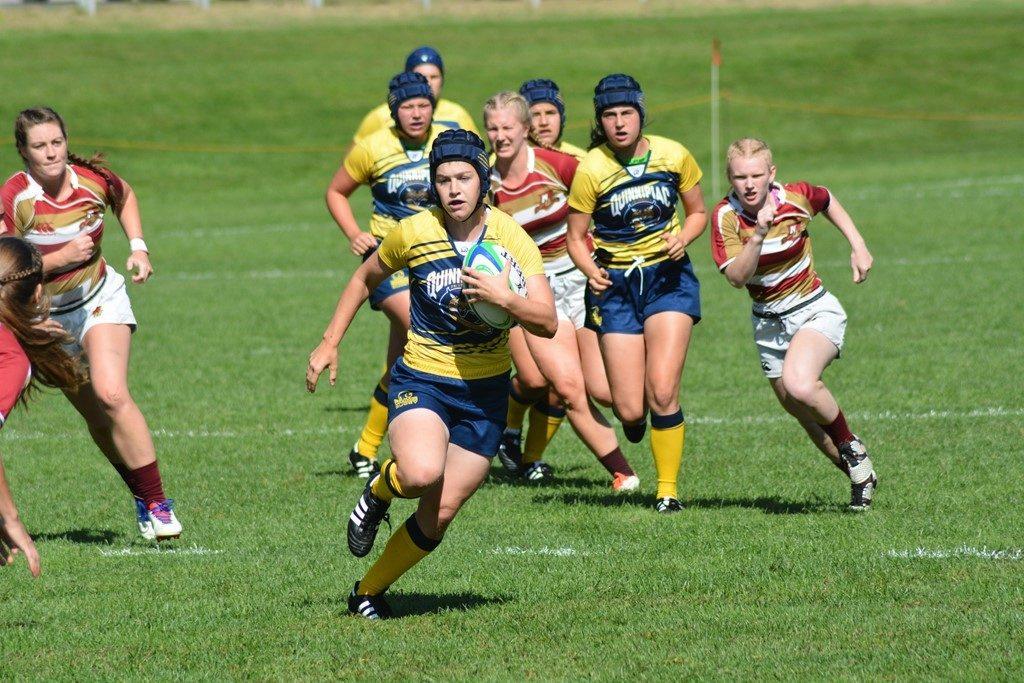

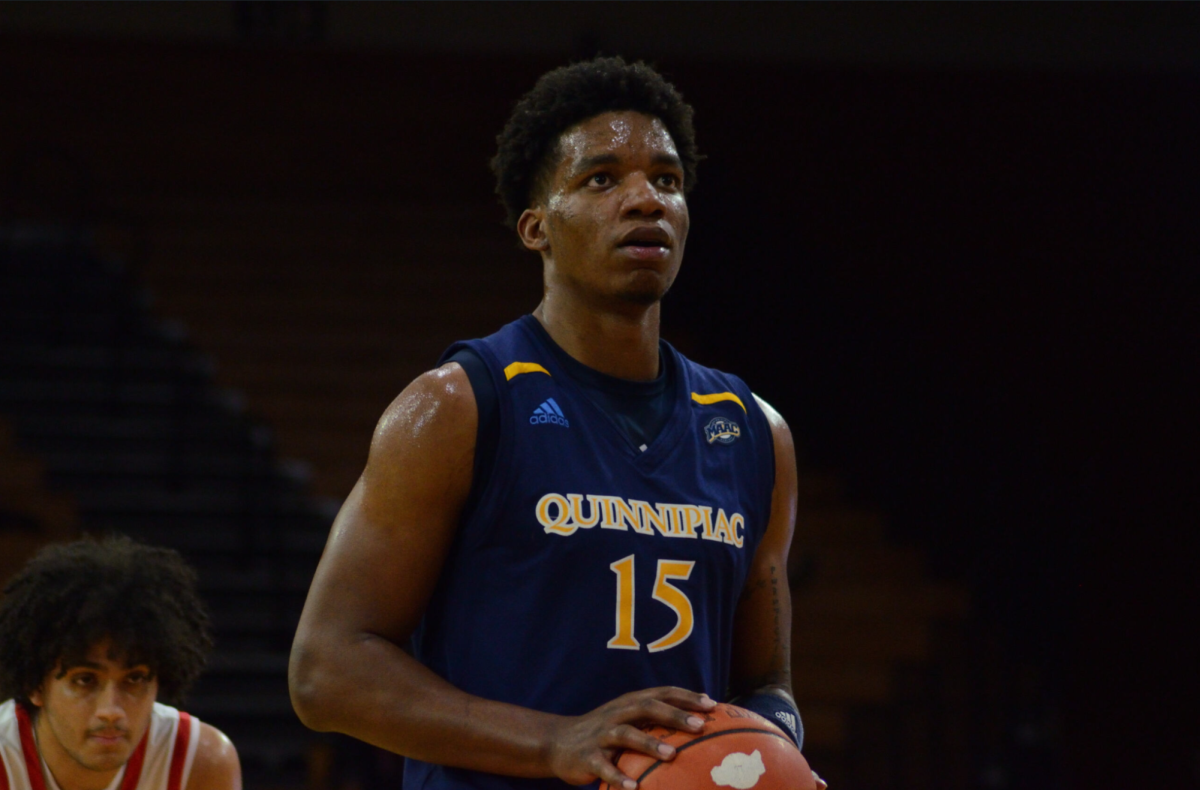
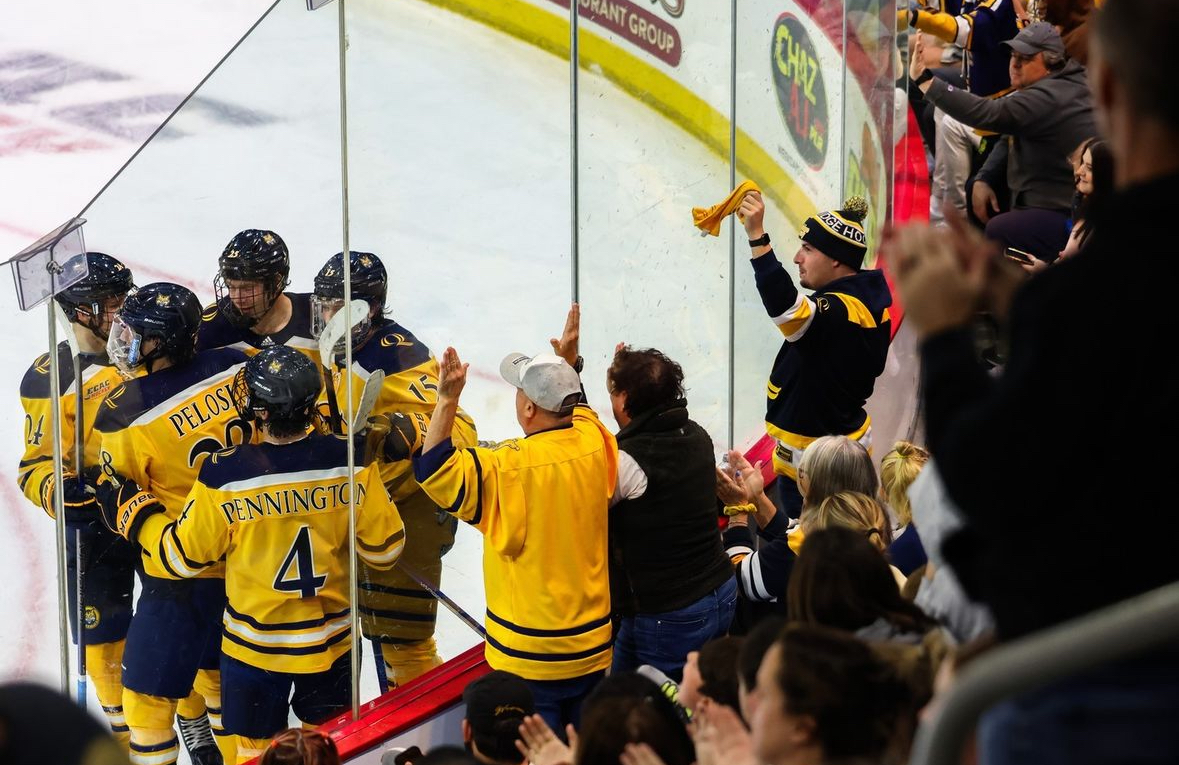
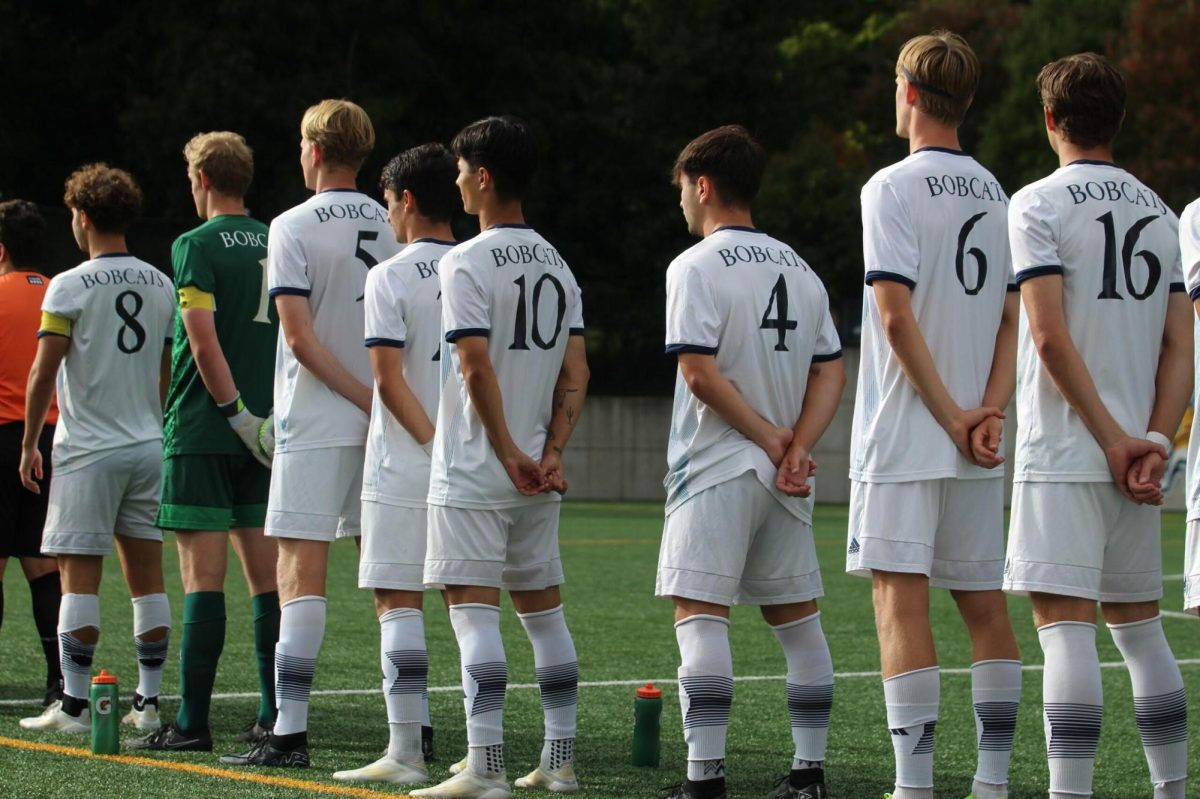
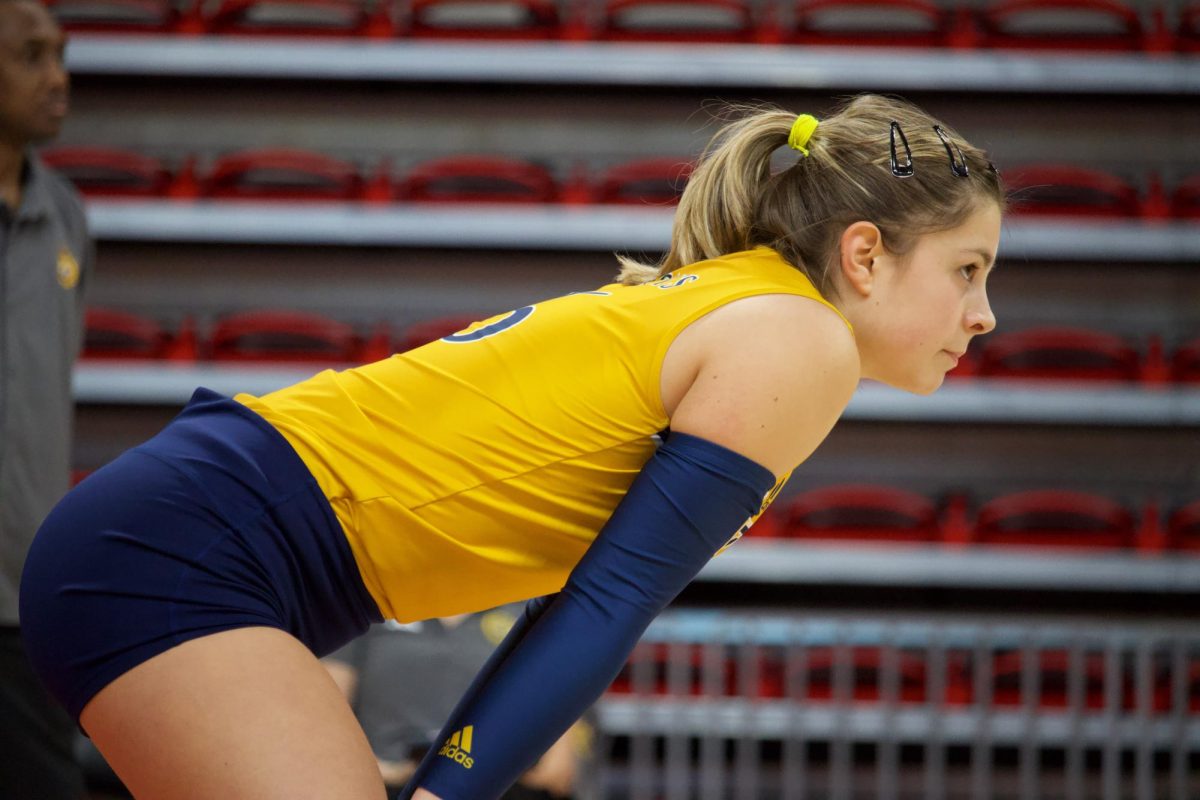
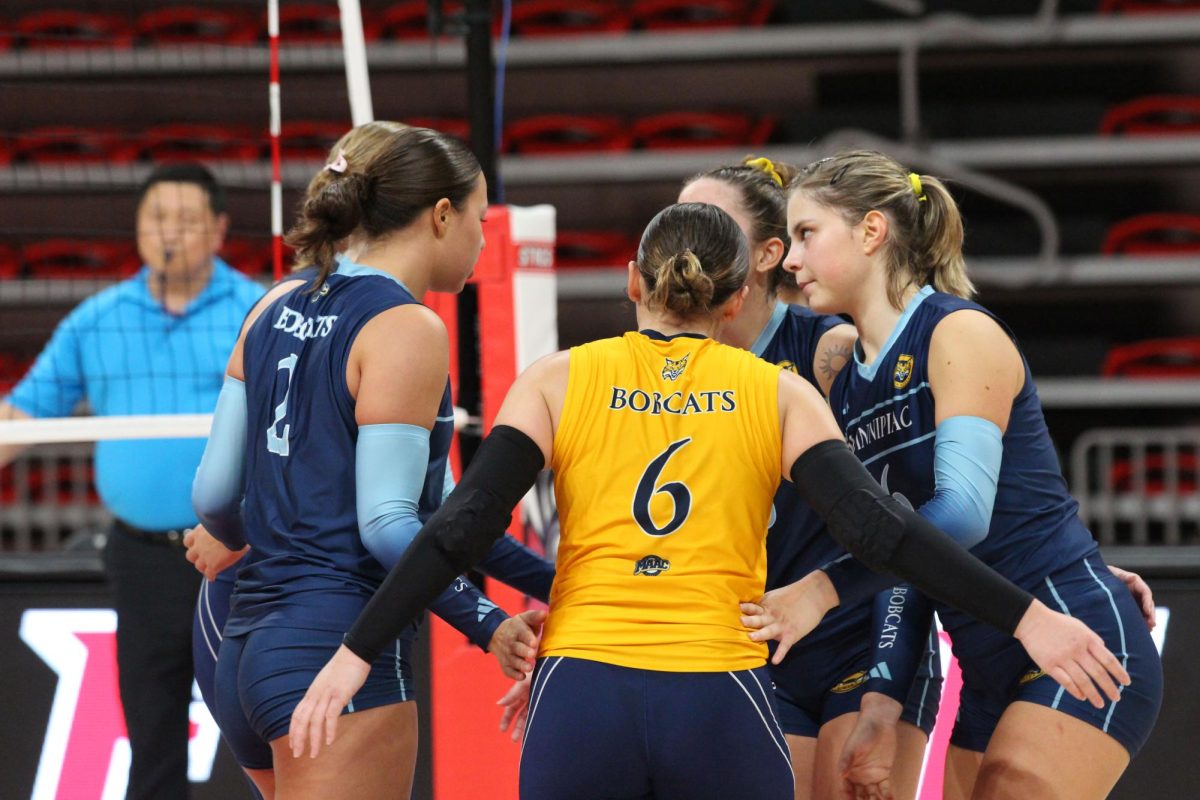
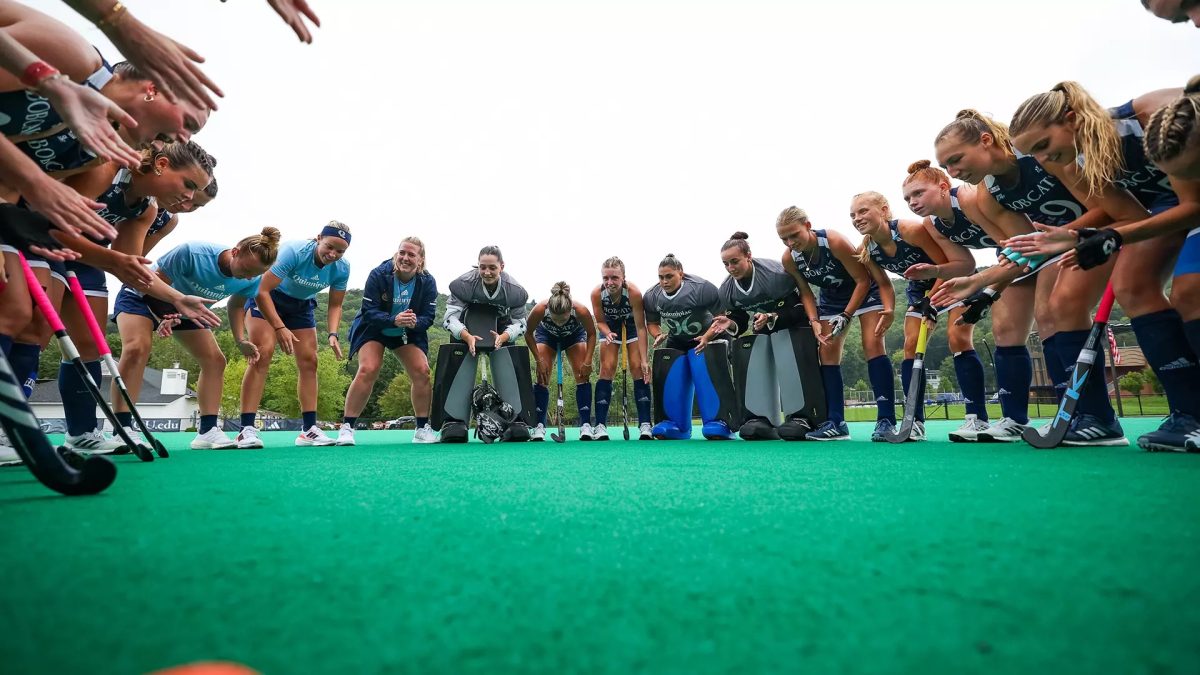
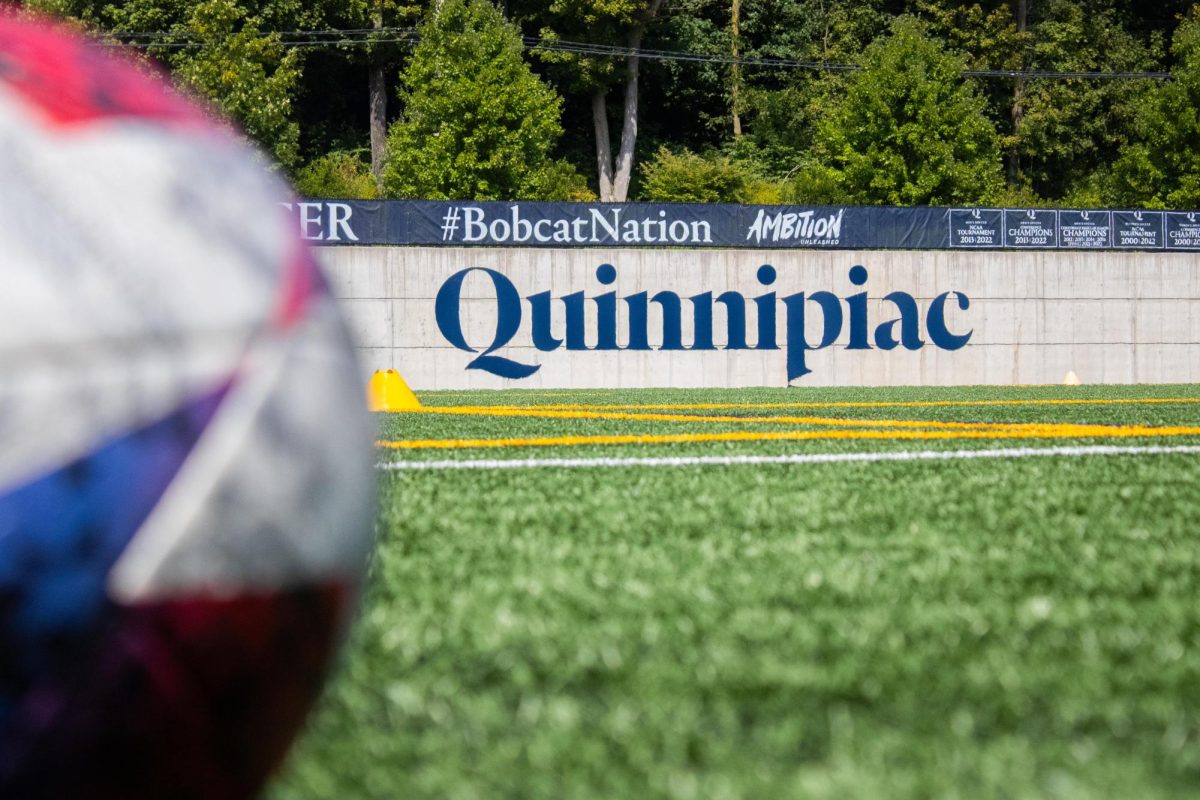
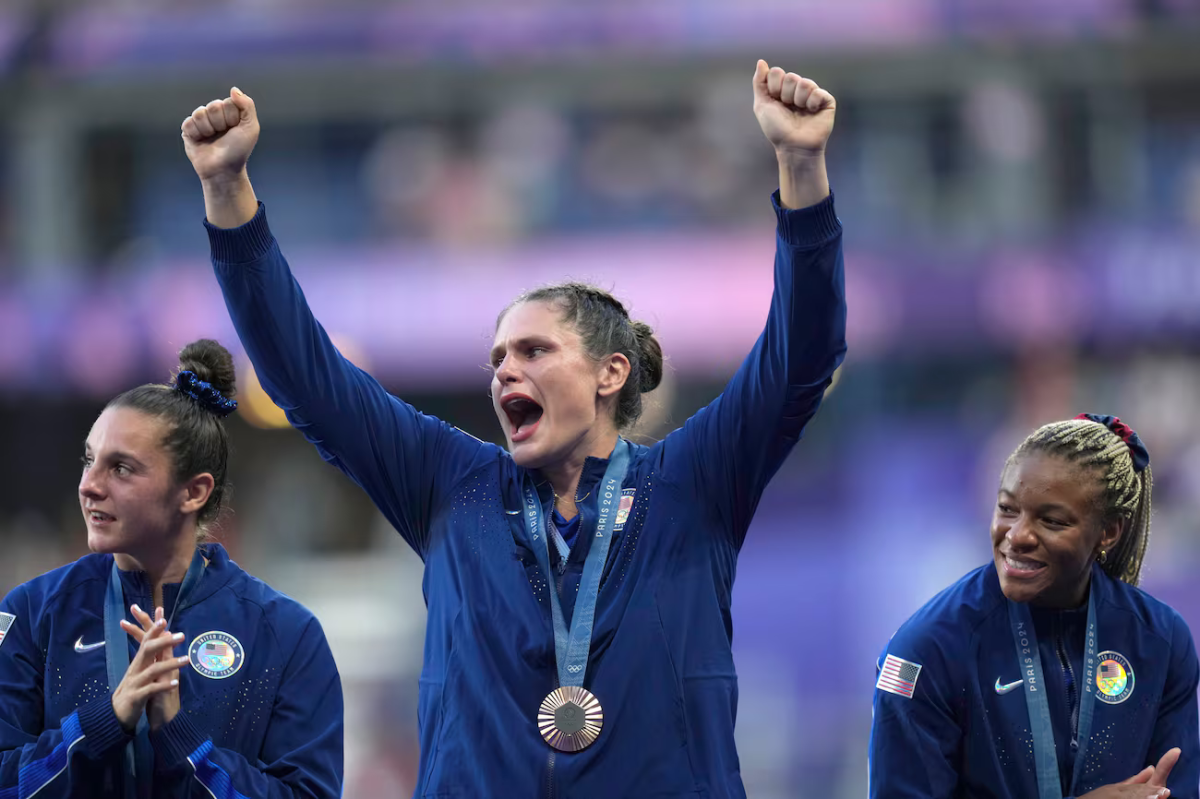

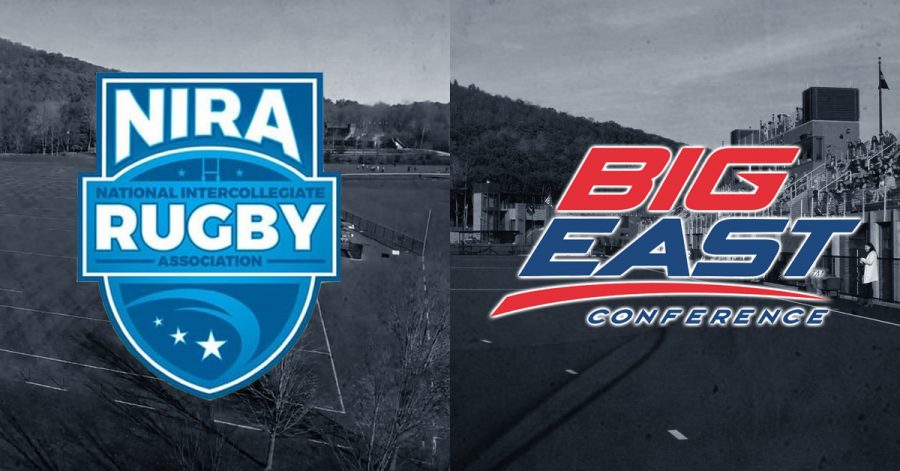
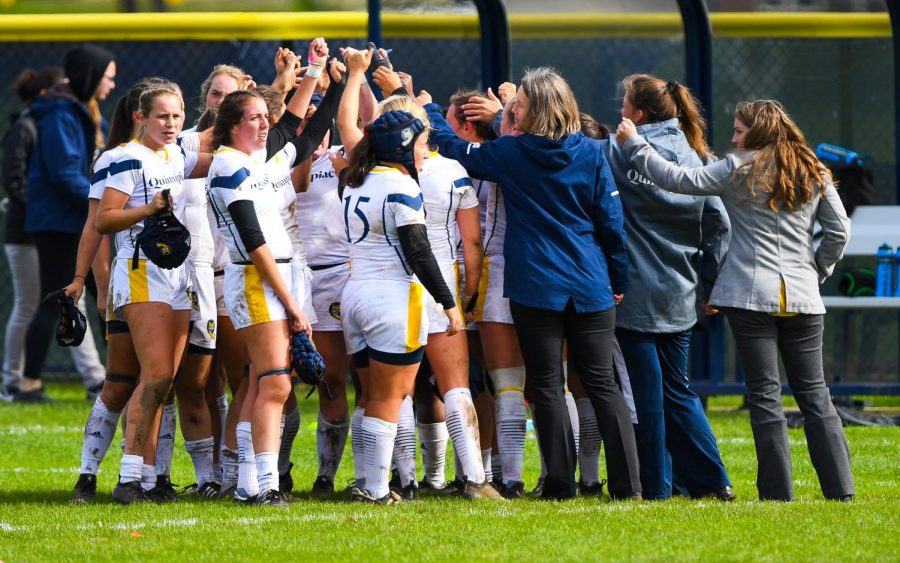
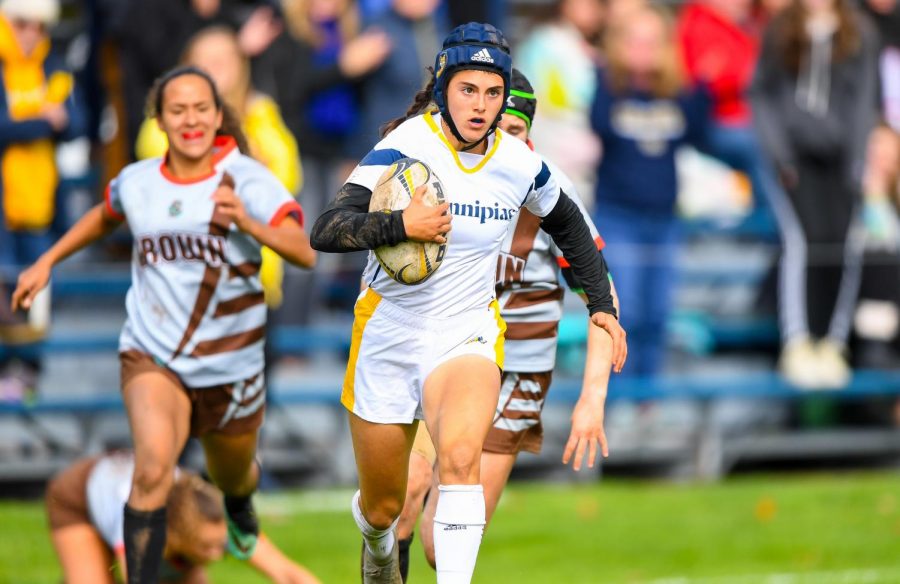
Sharon • Dec 1, 2016 at 6:55 pm
I wish the women’s team success. As to the woman who wants to be called a “man”, if this person is a young man, and wants to be called “he”, then why isn’t he playing on a men’s team? So, her female team mates have to call her “he”? We have so many women on our team, and we have one “man” who really isn’t a man yet because he doesn’t take testosterone, and hasn’t changed his name. Nevertheless, we must all call her “he”, or the ACLU, etc. might sue us. Do people really want to know why “he” isn’t on a men’s team? We know why, but we can’t say it. I’ll say it anyway. The reason this young woman isn’t physically “transitioning” is because she knows that no FTM (biological female) will ever be able to compete at an elite college level. Why doesn’t she take testosterone now? She doesn’t have the size and strength of a male college rugby player even if she takes testosterone. No FTM (biological female) will ever make it on an elite male rugby team. Ever. It’s not going to happen. Rugby is a very physical sport, and females don’t have the size and strength of males. The skeletal structure of females is different, females have a different sized pelvis, and males have more muscle mass. Females taking testosterone is never going to completely eliminate all the advantages that male athletes have, especially in terms of size and height. Dream on girl….
Breanna Whited • Dec 1, 2016 at 1:38 am
This truly well-written and fantastic article speaking of my nephew’s journey of playing collegiate rugby on a national championship team and how his team has supported him reveals his true strength of character. Speaking for our entire family, we ALL 100% support, love and accept Mason. We also extend our love to his teammates who were there for him when we were miles away in the “country” out West. The moment Mason told me he identified as a man, I felt I loved him even more deeply because in that exact moment I finally KNEW him. When his eight year old cousin found out, she simply stated, “THAT makes sense!” The truth is Mason has always authentically lived his life. He knew from the age of three that he didn’t want a female middle name and insisted his middle name was Josh. Mason, I love you. I see you. I am here for you always and the pride I feel in your state and national athletic championships PALES in comparison to the pride I have in your courage to live your authentic life. Your story will empower and inspire many others just has it has inspired me for the nearly 21 years you have been alive. You are truly the magic and the glue that has held our family together, and I see now that you are that to all you meet. You changed my life for the better the moment you came into this world, and you continue to astound me with your humility, hard work and talent. I have always been and will continue to be your number one fan, Mason. With Love, Aunt Nana